Discover Daily Theology Podcast
Daily Theology Podcast

Daily Theology Podcast
Author: Stephen Okey
Subscribed: 34Played: 160Subscribe
Share
© Stephen Okey
Description
The Daily Theology Podcast features conversations about the craft and vocation of theology. We speak with theologians from a variety of disciplines and traditions
stephenokey.substack.com
stephenokey.substack.com
55 Episodes
Reverse
In this month’s episode, I talk with Rabbi Shai Held, who is President of the Hadar Institute. Rabbi Held was visiting my institution, Saint Leo University, at the invitation of our Center for Catholic Jewish Studies. We spoke about his new book, Judaism is About Love: Recovering the Heart of Jewish Life, the role his parents played in his early interests in theology, and on what it means to love one’s enemies.Rabbi Shai Held is the President and Dean at the Hadar Institute in New York City. He earned his AB in Religion from Harvard University, his MA in Jewish Philosophy at the Jewish Theological Seminary, and his PhD in Religious Studies from Harvard University. He is the author of Abraham Joshua Heschel: The Call of Transcendence (Indiana University Press, 2013), The Heart of the Torah volumes one and two (Jewish Publication Society, 2017), and Judaism is About Love (Picador, 2024).I have again had an unexpected hiatus, and I won’t bore you with promises of upcoming consistency. I plan on two more episodes coming out in 2024, but what I plan on and what actually comes out ain’t ever exactly been similar. Get full access to Okeydoxy at stephenokey.substack.com/subscribe
In today’s episode, I talk with Elissa Cutter of Georgian Court University in Lakewood, NJ. I first met Elissa when we were undergrads at Georgetown University in Fr. Walsh’s Hebrew Scriptures seminar. In this conversation, we talk about her early interest in politics, stemming from growing up in a political family; her experience studying theology in France after the 9/11 attacks, and her work on feminist historical theology. Dr. Elissa Cutter is an Assistant Professor of Religious Studies and Theology at Georgian Court University in Lakewood, NJ. She earned her BA in French and Theology at Georgetown University, her MA in Theology from the Dominican School of Philosophy and Theology, and her PhD in Theological Studies from Saint Louis University. Her research focuses on Mother Angelique Arnauld, the 17th century abbess and reformer at the convent of Port-Royal, as well as the wider Jansenist movement in France. She is also an editor at Women In Theology. I apologize that I didn’t have this episode out last month, but I was beset by illness that I’ve only recently come out of. I’m planning to release three episodes over the next two months to make up for the gap, so look forward to those.You can also see the full transcript for this episode below.Thanks as always to Matt Hines of the band Eastern Sea for providing the music for the Daily Theology Podcast.Transcript of Episode #52 - Elissa Cutter[Opening Music]Stephen Okey: Welcome to the Daily Theology Podcast, a podcast on the craft and vocation of theology.I'm your host, Stephen Okey.In today's episode, I talk with Elissa Cutter of Georgian Court University in Lakewood, New Jersey. I first met Elissa when we were undergrads at Georgetown University in Father Walsh's Hebrew Scriptures seminar.In this conversation, we talk about her early interest in politics stemming, from growing up in a political family; her experience studying theology in France after the 9/11 attacks; and her work on feminist historical theology.I apologize that I didn't have this episode out last month, but I was beset by illness that I am still coming out of, which you can perhaps hear in my voice. I'm planning to release three episodes over the next two months to make up for the gap. So look forward to those.I hope you enjoy the episode and thank you for listening.[Music Transition]Stephen Okey: Today for the Daily Theology Podcast, I'm talking with my friend, Elissa Cutter, from Georgian Court University in New Jersey. Elissa, thank you for being here.Elissa Cutter: Yeah. Thank you so much for inviting me.Stephen Okey: I like to begin by asking, how did you get into studying theology?Elissa Cutter: Yeah, thank you. Gosh, I feel like my story is, is very convoluted. And it is, you know, like so many others it was not my intention to study theology initially. I think I should start with a little bit of background, which is that my family was actually very involved in politics in Massachusetts.So, the closest person to me in this, as a kind of role model in this was my grandfather, and he had been Attorney General of Massachusetts, and he also ran against Ted Kennedy for the Democratic nomination for Senate.Stephen Okey: Wow.Elissa Cutter: And lost.Stephen Okey: Yeah, yeah, I figured.Elissa Cutter: Um, but that, that was actually a big thing, like, in the debate, he, there was this line, and I, I'm probably going to misquote it, but he basically said to him, if your name were Edward Moore instead of Edward Moore Kennedy, your candidacy would be a joke.And, yeah, so people felt bad for Kennedy, apparently. And, so, yeah, my grandfather lost. But it, so he wasn't just, I should note, my grandfather was also running a little bit on his name as well. His, um, uncle at the time was Speaker of the House of Representatives. So, like my family had been involved in politics for a while in Massachusetts.Stephen Okey: And these were the McCormacks?Elissa Cutter: Yes, these are the McCormacks. John W. McCormacks was Speaker of the House under Kennedy. And my grandfather's name was Edward. And I basically decided that I, I wanted to be the first female senator from Massachusetts. So shout out to Elizabeth Warren, who was the first female senator from Massachusetts.Um, but that was what I wanted to do, and so I decided to go to Georgetown. I wanted to be in DC, and I also went in as a French major because I was interested in kind of international stuff and I had been studying French for so long and I wanted to keep doing that, so those are, that's kind of the background.The very first semester I was at Georgetown, I was taking, the United States political systems class, which was the required class for the government major. And at the same time taking the kind of gen ed requirement of Problem of God, with, Father King. And the U.S. Political systems class, just bored me out of my mind.I very quickly decided that that was not going to be my path. And at the same time, I was so fascinated by, by Father King's class and the ideas that he was putting out in front of us. And I, I just, I wanted more of that. So initially I decided to do a theology minor along with my French major. But what happened was I, as a French major was planning to go abroad in my junior year, and one of the things that French major or language majors at Georgetown have to do is you have to reach a certain level in a second language as well.So I had been taking Brazilian Portuguese, because why not? And when I went to discuss studying abroad with my advisor, they basically said, Don't take language while you're abroad. So I had taken my sophomore year, I had done a year of Brazilian Portuguese. They were like, don't take language while you're abroad because, First of all, it's going to be the wrong kind of Portuguese.You're going to be doing Portugal Portuguese in France, and you don't want to be doing that. It'll kind of mess you up, but also, it'll be, you know, extra hard to take another language through, you know, something that's already a second language. Except that in order to graduate, I would have to pick up exactly where I left off when I came back.So, I was kind of freaking out with my roommates, like, I'm not going to be able to graduate because there's no way that I can do this, this is totally unreasonable of them. And one of my roommates said, why don't you just do a theology major? So, like, quite literally, this was like super practical considerations that actually made me a theology major.Stephen Okey: I don't hear that very often.Elissa Cutter: But I remember that moment though, weirdly enough, like she said that, and I just kind of like stopped my rant in the middle of our apartment. And it was like, yeah, like that makes sense. So I do feel like in some ways there was this like, providential hand guiding me along the way, and, you know, leading me to make all of these decisions.So, anyway, I ended up not going abroad for a whole year, as you know, because we were in classes together, because of 9/11. So I was actually originally supposed to fly out of Boston to go to France, like the Friday after 9/11, and at the time, the Boston airport was not going to be open, and it was not sure when it was going to be open, so there was no sense of, like, when I would actually be able to get to France.Stephen Okey: I mean, I think people forget that, like, all airspace was shut down for, like, four days after 9/11, and then, I mean, in D. C., it was several weeks, because I, I remember being on the lawn in front of Healy the first time we saw a plane fly over after 9/11, and you just saw everybody just stop and look, at what had previously been a very normal occurrence, like, you just learned to stop conversing with people when the planes flew over.Elissa Cutter: I know it was, it was such a wild experience. So Georgetown gave us the option of either waiting and going abroad whenever we could get there or coming back to campus. And I actually opted to come back to campus and then just go abroad for the spring semester.So, I mean, that was a, that was a huge effect, but I ended up coming back and taking a bunch of, you know, theology classes, which I think I was in with all of them with you at that time, and then I went abroad to France and in France as well I was also mostly taking theology classes.So there's actually an interesting thing I should add in here. So I was studying in Strasbourg, which is the only public university in France, which has a faculty of theology. The reason is that when France got rid of theology in all of their universities, Strasbourg was part of Germany, so, uh, you know, all of that weird history and back and forth of that area between Germany and France, it's now French, but, they still have a faculty of Catholic theology and a faculty of Protestant theology there.Stephen Okey: What was it like studying theology in France? I mean, even in Strasbourg, like, I imagine there was still some amount of, you know, the sense of laïcité and religious resistance and so forth.Elissa Cutter: Yeah, I mean I had classes with monks and nuns at the time, you know. So I had an ethics class that I took there, a class in the history of the liturgy, which was very hard to do through another language, I will say. Actually the class that inspired me most and this one's kind of interesting because it's what really led me on my path was not one of my theology classes, but I took a class in 16th and 17th century French literature. And in that class it was three hours every week, and the first hour was lecture, and then the second and third hours were like discussion section.And in the discussion section, we read Pascal's Pensées. And that was the only book that we read the whole semester. And, but here's, I know, but here's the interesting thing about that. So. It wasn't so much what kind of the teacher was teaching us about how to read the Pensées, but what I had learned about how to interpret texts from our Old T
For this month’s episode of the Daily Theology Podcast, I spoke with Professor Jessica Coblentz. We talk about the influence of Henri Nouwen’s Life of the Beloved on her path to studying religion, her research on theology and depression, and thinking theologically about suffering. We focus especially on her book, Dust in the Blood: A Theology of Life with Depression, which I recommend you all go out and get after you listen to the episode (you can order it direct from the publisher here or from the behemoth here).Dr. Jessica Coblentz is an Associate Professor of Religious Studies and Theology at St. Mary’s College in Notre Dame, Indiana. She holds a BA from Santa Clara University, an MTS from Harvard Divinity School, and a PhD from Boston College. She is the author of Dust in the Blood: A Theology of Life with Depression (Liturgical Press, 2022), which won the 2023 award for best book from the College Theology Society. She also co-edited The Human in a Dehumanizing World: Re-Examining Theological Anthropology and Its Implications (Orbis, 2022) with Daniel Horan, OFM.Thanks as always to Matt Hines of the band Eastern Sea for providing the music for the Daily Theology Podcast. Get full access to Okeydoxy at stephenokey.substack.com/subscribe
For the first Daily Theology Podcast episode of 2024, we welcome Heather Miller Rubens of the Institute for Islamic, Christian, and Jewish Studies. We talk about how her early interest in Hebrew scriptures led to the study of Jewish Catholic relations, the work of the ICJS, and about how to do interreligious dialogue well. We focus especially on her forthcoming project, In Good Faith: An Argument for an Interreligious Society, and her argument that the public sphere actually needs more talk about religion, not less, if we want to live in a healthy and functioning society. Dr. Heather Miller Rubens is the Executive Director and Roman Catholic Scholar at the Institute for Islamic, Christian, and Jewish Studies (ICJS). She has a BA from Georgetown University, and an MA and PhD from the University of Chicago Divinity School. Her research focuses on theological, ethical, and political issues relating to the roles of religion and interreligious dialogue in the public square. You can also see the full transcript for this episode below.Thanks as always to Matt Hines of the band Eastern Sea for providing the music for the Daily Theology Podcast. Transcript of Episode #50 - Heather Miller Rubens#50 – Heather Miller Rubens[Opening Music]Stephen Okey: Welcome to the Daily Theology Podcast, a podcast on the craft and vocation of theology. I'm your host, Stephen Okey.In today's episode, I talk with Heather Miller Rubens, who is the Executive Director and Roman Catholic scholar at the Institute for Islamic, Christian, and Jewish Studies. We talk about how her early interest in Hebrew scriptures led to the study of Jewish Catholic relations, the work of the ICJS, and about how to do inter-religious dialogue well. We focus especially on her forthcoming project "In Good Faith: An Argument for an Interreligious Society," and her argument that the public sphere actually needs more talk about religion, not less, if we want to live in a healthy and functioning society.Thanks to everyone who has subscribed through Substack, where this podcast is joined to my Okeydoxy newsletter. New episodes of the podcast will come out each month while newsletters will come out every two weeks or so. The next one of those will be on Martin Scorsese's "The Last Temptation of Christ" as part of my "Celluloid Christ" series.I hope you enjoy the episode and thanks for listening.[Music Transition]Stephen Okey: Today for the Daily Theology Podcast, I'm talking to my friend, Heather Miller Rubens. Heather, thank you for being here.Heather Miller Rubens: Thank you for inviting me.Stephen Okey: You are the executive director, and Roman Catholic scholar at the Institute for Islamic, Christian, and Jewish Studies, which sounds like a lot of heavy double duty. So I like to, I like to open by asking people, how did you get into doing theology?Heather Miller Rubens: Yeah, so I went to Catholic school my whole life, from elementary school through college, at Georgetown University, where we met as undergrads so many, many years ago. And I was a double major in theology and creative writing. And towards the end of my time there, I actually took a Hebrew Bible class with Father Jim Walsh and started learning Biblical Hebrew with him, and he sort of encouraged me to keep going with religion, the study of religion, as did a lot of my other undergraduate mentors as well.And I knew I wanted to, to, to study a religion that I didn't identify with. It wasn't mine and really very much enjoyed Hebrew, and so went to the Oxford Center for Hebrew and Jewish Studies for a 1 year masters and sort of immerse myself in the study of Judaism and the study of the Hebrew language, and then went to the University of Chicago to pursue a doctoral degree and an additional masters.And at the University of Chicago I was able to combine my doctoral studies with Judaism and Christianity, and do that under the history of Judaism section. So, I actually trained as a historian at the University of Chicago, focusing on the early 20th century and Jewish Catholic relations in Europe and in the United States.And then the job posted at the institute for, um, at the time the Institute for Christian and Jewish Studies. They were looking for a Roman Catholic scholar who was interested in Catholic Jewish relations, which was exactly what my dissertation was about.And so I applied and landed at ICJS and, we're an academic nonprofit, and so the organization is very much focused on, not only religion in this kind of academic classroom, but religion in community. So we work a lot with, religious practitioners, so clergy and religious leaders and congregations, but we also work with the general public, and folks who have different relationships to religion.And so, in my work at ICJS since 2011, I keep asking more and more theological questions and more and more questions of belief and how our beliefs, not only about our own communities, but our beliefs about each other, so, especially beliefs that cross religious traditions, really impact our, our relationship to one another and sort of helping people explore what that means.So the, the kind of horizontal relationships, the intergroup relationships, between communities and between individuals, and then how that, the vertical relationship with, with the divine, with God, how that impacts those relationships.Stephen Okey: So I want to step back, just to something you said, which was, you know, as you were wrapping up undergrad, you wanted to study something that was outside your own religious tradition or something that you did not yourself identify with. Why? What was it that was motivating you there?Heather Miller Rubens: Ah, that's a great question. I don't know. I think it was a, uh,Stephen Okey: That's fair.Heather Miller Rubens: I like how, how much you could apply agency to, to some choices made in your early twenties. Um, I'm not entirely positive. I, I think I had a, just a deep curiosity about the Jewish tradition in particular and the Hebrew Bible was the sort of entry point into that.And then just learning more about rabbinic tradition and interpretation of the Hebrew Bible, and how much it is different than Catholic interpretation, Christian interpretation of the Hebrew Bible. And so what does it mean when two communities share a common text, but interpret that text in, in different ways, and how do you sit with that? How do you sit with that reality? And again, even right within, of course, within each tradition, there's so much diversity that sort of internal diversity to interpretation, but diversity across traditions is what really interested me. And I wanted to go deeper into that.Stephen Okey: Yeah, that makes sense. I know for me, part of why I went into theology was trying to work out my own issues, uh, on some level. And so it's, it's nice to hear something that's kind of a more healthy response, maybe, uh, for academic interests.Heather Miller Rubens: I'll also say, and this is something I've circled back to now in, in, in sort of my practice as a, I identify as kind of a scholar practitioner of interreligious dialogue at this point, that my academic interest is in the so called Jewish question. And so what does it mean for the modern nation state to be born in, in, in the sort of European context and to come up and say, religious diversity is a problem for the modern nation state.And, you know, the, the, the horrific answer to the so called Jewish question is the final solution of the Holocaust. And so what does it mean when a Christian society decides that religious diversity internal within it, it's not possible and, and seeks a genocidal response. And so, and I think those questions about the status of religious diversity, what, what does it mean to live in a religiously diverse world?Is that always a problem? I think that that is a core interest that I've carried from my time at Georgetown to my time at ICJS.Stephen Okey: Yeah, I definitely, I want to keep talking about this one. So I had other questions I'll come back to, but you're currently working on a project called "In Good Faith: An Argument for an Interreligious Society," where you're dealing with this question, right, at least the reality of religious diversity in a, in a pluralist society. And there's definitely, as you've said, there's a framing of that as a problem that asks for a solution. And that solution has historically in many cases turned genocidal, violent, discriminatory. Could you talk a bit about this project and what you are sort of setting out to do?Heather Miller Rubens: Yeah, so, after over a decade now at ICJS, I feel like I keep having to make an argument as to why people should engage in interreligious work, why people should engage honestly in more religion talk rather than less religion talk with one another. And so sort of the basic motivation is bringing that level of argumentation that I've made to both participants in our program, community members, and just the sort of broader community in the United States that that may or may not want to engage in religion talk as to why it's necessary.And I, I think in the United States, and I very much want to ground our dialogue work in the United States, because interreligious work looks different in different social and cultural contexts, but in the United States, we have this kind of ideal of welcoming citizens of all religion and no religion, as a sort of an aspiration, but we just rarely engage interreligiously as a civic practice and so people aren't comfortable doing so.And I would say that the question of how diverse citizens should bring their religious voices to civic conversations is the sort of animating idea as to why I want to write this book, and I want to make an argument for a multi religious democracy and what does a functional multi religious democracy look like.And the book is not meant to be a blueprint of an answer to that question. It's to, um, I, I want to state that very clearly. It
This episode welcomes Chris Bellitto of Kean University to the podcast. We talk about his first career as a journalist, as well as how that background helped him as a scholar, teacher, and public commentator on church events. We also discuss working with students in the classroom in a way that both provokes reflection while sustaining civil conversation… Get full access to Okeydoxy at stephenokey.substack.com/subscribe
In our newest episode of the podcast, I talk with my friend and fellow Boston College alum Nichole Flores. We talk about how working with the Coalition of Immokalee Workers during divinity school helped her understand her vocation as a theologian, how she understands the public role of the theologian, including at public universities, and her work on the intersection of theology and democracy. We also talk extensively about her book The Aesthetics of Solidarity (https://amzn.to/3EUcOSk) and the diverse ways that people appropriate significant religious symbols like Our Lady of Guadalupe.Dr. Nichole Marie Flores (https://religiousstudies.as.virginia.edu/nichole-m-flores) is Associate Professor of Religious Studies at the University of Virginia. She earner her AB in Government at Smith College, her MDiv from Yale Divinity School, and her PhD in Theological Ethics from Boston College. Her research focuses on the intersection of Catholic ethics, theological aesthetics, and democracy. She is the author of The Aesthetics of Solidarity: Our Lady of Guadalupe and American Democracy (https://amzn.to/3EUcOSk) (Georgetown University Press, 2021). Get full access to Okeydoxy at stephenokey.substack.com/subscribe
In our second episode back from hiatus, Steve Okey speaks with Jon Malesic, author of The End of Burnout from University of California Press. They talk about how his early interest in physics and the mysteries of the universe drew him to study theology, how his personal experience with burnout led to his research on it, and where he now situates himself with respect to theology.Jon Malesic (https://twitter.com/JonMalesic?ref_src=twsrc%5Egoogle%7Ctwcamp%5Eserp%7Ctwgr%5Eauthor) is an author, journalist, and scholar who teaches writing at Southern Methodist University and University of Texas at Dallas. He previously was an associate professor of theology at King’s College in Wilkes-Barre, PA. He earned his BA degree from the Catholic University of America and his PhD from the University of Virginia. He is the author of two books, Secret Faith in the Public Square (https://amzn.to/3OE1Wyg) (Brazos, 2009), and The End of Burnout: Why Work Drains Us and How to Build Better Lives (https://amzn.to/3BWkQsG) (University of California Press, 2022). For more on Jon Malesic, you can visit his website (https://jonmalesic.com/) or subscribe to his Substack newsletter (https://jonmalesic.substack.com/).Thanks as always to Matt Hines of the band Eastern Sea (https://open.spotify.com/artist/1g7l0o1IobV06d8Y4kyEhY) for providing the music for the Daily Theology Podcast. You can support the Daily Theology Podcast at Patreon for as little as $2 a month (https://www.patreon.com/dailytheopod), or you can buy Steve a cup of tea at Ko-Fi.com (https://ko-fi.com/dailytheopod).You can find the Daily Theology Podcast on Twitter (https://twitter.com/DailyTheoPod)Instagram (http://www.instagram.com/dailytheopod)YouTube (https://www.youtube.com/@dailytheopod) Get full access to Okeydoxy at stephenokey.substack.com/subscribe
Yes, the show is back, and for our first episode after the long hiatus, we’re sharing Stephen Okey’s conversation with Amanda Osheim. In this episode we learn how she was drawn to study theology, and in particular ecclesiology or the study of the church. In light of that, we talked extensively about the concept of synodality, what’s happening with the synod on synodality, and some of the questions people have about it. Dr. Amanda Osheim is an Associate Professor of Practical Theology at Loras College (https://www.loras.edu/) in Dubuque Iowa, where she is also the Endowed Professor for the Breitbach Catholic Thinker and Leaders Program. She earned her BA and MA from University of St. Thomas in St. Paul, MN; and her Ph.D. in Systematic Theology from Boston College. Her research focuses in ecclesiology, and her first book, A Ministry of Discernment: The Bishop and the Sense of the Faithful (https://amzn.to/44ot8q6), was published by Liturgical Press in 2016. Thanks as always to Matt Hines of the band Eastern Sea (https://open.spotify.com/artist/1g7l0o1IobV06d8Y4kyEhY) for providing the music for the Daily Theology Podcast. Support the show!Leave reviews on Spotify (https://open.spotify.com/show/4DtBqwLYE9amYCuEkJdqwK), Apple Podcasts (https://podcasts.apple.com/us/podcast/daily-theology-podcast/id981555001), Stitcher (https://www.stitcher.com/show/daily-theology-podcast), or wherever else!Follow us on Twitter (https://twitter.com/dailytheopod), Instagram (https://www.instagram.com/dailytheopod/), and YouTube (https://www.youtube.com/@dailytheopod)!Become a patron on Patreon (https://www.patreon.com/dailytheopod)! Three tiers available!Thanks for listening! Get full access to Okeydoxy at stephenokey.substack.com/subscribe
The Daily Theology Podcast returns after almost four years away! Steve gives some life updates and some podcast updates. Support the show!Leave reviews on Spotify (https://open.spotify.com/show/4DtBqwLYE9amYCuEkJdqwK), Apple Podcasts (https://podcasts.apple.com/us/podcast/daily-theology-podcast/id981555001), Stitcher (https://www.stitcher.com/show/daily-theology-podcast), or wherever else!Follow us on Twitter (https://twitter.com/dailytheopod), Instagram (https://www.instagram.com/dailytheopod/), and YouTube (https://www.youtube.com/@dailytheopod)!Become a patron on Patreon (https://www.patreon.com/dailytheopod)! Three tiers available!Thanks for listening! Get full access to Okeydoxy at stephenokey.substack.com/subscribe
The June episode of the podcast features Anne Michelle Carpenter of St. Mary’s College of California! She spoke with Stephen Okey about how reading Patristic theology led her to study Hans Urs von Balthasar, the challenge and promise of teaching metaphysics to undergraduates, and the way she engages poetry in her work. They also talk a lot about Star Wars, including Prof. Carpenter’s January term course on Star Wars and Religion! Dr. Anne Michelle Carpenter is an Assistant Professor of Theology at St. Mary’s College of California in Moraga, CA. She earned her BA in History and Theology from Franciscan University of Steubenville, and then earned an MA and a PhD in Systematic Theology from Marquette University. Her research interests focus on the interrelations between aesthetics and metaphysics, with particular interest in the work of Hans Urs von Balthasar. She is the author of Theo-Poetics: Hans Urs von Balthasar and the Risk of Art and Being (University of Notre Dame Press, 2015). Get full access to Okeydoxy at stephenokey.substack.com/subscribe
Closing out March, this episode of the podcast features Megan McCabe! She spoke with Stephen Okey about her path to studying theology, the idea of “cultures of sin” and how it relates to social sin and structures of sin, and the centrality of tradition in Catholic theology. Dr. Megan McCabe is an Assistant Professor of Religious Studies at Gonzaga University in Spokane, WA. She earned her BA in Theology from Fordham University, her MTS in Moral Theology from University of Notre Dame, and her PhD in Theological Ethics from Boston College. Her current research focuses on the idea of “cultures of sin,” drawing on Fr. Bryan Massingale’s work on racism to talk about sexual violence. She has been published in Sojourners, America Magazine, and Daily Theology. For the America pieces we discuss in this episode, see: “Why Catholic moral theology is a sign of hope in today’s church” (interview with Bill McCormick, SJ, 2019) “Create in Me A Just Heart: Treating pornography as a structure of sin” (2016) Get full access to Okeydoxy at stephenokey.substack.com/subscribe
This episode of the Daily Theology podcast features Prof. Katie Grimes of Villanova University! She talks with Stephen Okey about how her two years of volunteering with Amate House in Chicago led her to change career plans from law school to theology, her work on race and white supremacy, and how she understands popular culture as a locus for theology. She also talks about theological blogging and the gifts she’s received from writing for Women in Theology. Dr. Katie Grimes is an Assistant Professor of Theological Ethics at Villanova University. She earned her BA in philosophy and her MTS from the University of Notre Dame, and her PhD in Theological Ethics from Boston College. She is the author of two books: Fugitive Saints: Catholicism and the Politics of Slavery (Fortress, 2017) and Christ Divided: Antiblackness as Corporate Vice (Fortress, 2017). She has also written for Political Theology and Journal of Religious Ethics among others. Get full access to Okeydoxy at stephenokey.substack.com/subscribe
Happy New Year from the Daily Theology Podcast! We come back with a new episode featuring Stephen Okey’s conversation with Holly Taylor Coolman. They talk about how the evangelical subculture she grew up in provided the grounding for her interest in theology and how studying scripture drew her into questions about Jewish-Catholic dialogue. They also talk about the campaign she ran for a seat in the Rhode Island statehouse, how Thomas Aquinas shaped her motivation to do so, and her reflections on being a Catholic in politics. Dr. Holly Taylor Coolman is an Assistant Professor of Theology at Providence College in Providence, RI. She did her undergraduate studies at Wheaton College, her masters at Princeton Theological Seminary, and her doctoral work at Duke University. Her research interests are in Christianity and Judaism, ecclesiology, and the theology of St. Thomas Aquinas. Her work has been published in Journal of Moral Theology, Studies in Christian-Jewish Relations, and America Magazine among others. Get full access to Okeydoxy at stephenokey.substack.com/subscribe
The podcast closes out 2018 with Steve Okey’s conversation with Micah Kiel. In this episode, they talk about how Micah’s experience of studying abroad prompted his interest in theology, his time volunteering in Belize, and his thoughts on technology in the classroom. They also discuss his new book, Apocalyptic Ecology, and how it relates to contemporary discussions of climate change. Micah Kiel is Professor of Theology at St. Ambrose University in Davenport, IA. He earned his BA in Music Performance at St. John’s University in Collegeville, MN, and he then went on to earn his MDiv and his PhD in Biblical Studies from Princeton Theological Seminary. He is the author of The “Whole Truth”: Rethinking Retribution in the Book of Tobit (T&T Clark, 2014) and Apocalyptic Ecology: The Book of Revelation, the Earth, and the Future (Michael Glazier, 2017). His research focuses on Biblical studies and apocalyptic texts. Get full access to Okeydoxy at stephenokey.substack.com/subscribe
Episode 40 of the podcast comes to you with Steve Okey’s conversation with Philip Cunningham of Saint Joseph’s University. Prof. Cunningham was visiting Saint Leo to give a presentation on “Moving Toward Mutuality? Challenges in Catholic-Jewish Relations.” He was also named the 14th recipient of the Saint Leo Center for Catholic Jewish Studies’ Eternal Light Award, in recognition of his significant contributions to Catholic-Jewish relations. In this episode, Prof. Cunningham speaks about his early research into how Christian religious education material represented and misrepresented Judaism, on rethinking the Good Friday liturgy in light of anti-Semitism, and how Jewish-Christian dialogue might enable one to think more deeply about Christology. This episode was recorded on October 25th, two days before the mass shooting at the Tree of Life synagogue. Prof. Philip A. Cunningham is Professor of Theology and Director of the Institute for Jewish-Catholic Relations at Saint Joseph’s University in Philadelphia, PA. He earned his BA in History and MsEd from Fordham, his MA in religious education from LaSalle University, and his PhD in Religion and Education from Boston College. He is most recently the author of Seeking Shalom: The Journey to Right Relationship between Catholics and Jews (Eerdmans, 2015), and the co-editor of Christ Jesus and the Jewish People Today: New Explorations of Theological Interrelationships (Eerdmans, 2011) and The Catholic Church and the Jewish People: Recent Reflections from Rome (Fordham University Press, 2007). Special thanks for this episode to Dr. Matthew Tapie, Director of the Center for Catholic Jewish Studies at Saint Leo University making the recording of this conversation possible. Get full access to Okeydoxy at stephenokey.substack.com/subscribe
Today’s podcast features a conversation between Daniella Zsupan-Jerome and Stephen Okey! Friends from their time together at Boston College, they talk about how Daniella’s experience in RCIA aided her in discovering her vocation to theology, her research into media, technology, and theology, and how she brings digital media into her classroom. She also discusses her love for The Office and sets us straight on the Lenten #ashtag controversy. Dr. Daniella Zsupan-Jerome is Director of the MA in Pastoral Leadership and Professor of Pastoral Theology at Notre Dame Seminary in New Orleans, LA. She earned he BA from University of Notre Dame, Masters degrees from St. John’s University in Collegeville and Yale Divinity School, and her PhD in Theology and Education from the Boston College School of Theology and Ministry. She is the author of Connected Toward Communion: The Church and Social Communication in the Digital Age (Michael Glazier, 2014). She has written in the past for the Daily Theology blog. Get full access to Okeydoxy at stephenokey.substack.com/subscribe
Today on the podcast we have Fr. Robert Imbelli! Now emeritus from Boston College, Fr. Imbelli spoke with Stephen Okey by phone this summer about how he found his vocation to theology within the Italian-American Catholic subculture of the mid-twentieth century, how that led him to study in Rome during the four sessions of Vatican II, and why he thinks Dei Verbum is the central text for interpreting the texts of that Council and the mission of the Church since. We also talk about Fr. Imbelli’s work in writing for popular publications and the movie A Quiet Place, which Steve is still too scared to watch. Fr. Robert Imbelli is Associate Professor Emeritus of Theology at Boston College, where he taught for thirty years. Prior to that, he taught at St. Joseph’s Seminary (colloquially known as Dunwoodie) in New York. He earned his BA from Fordham University, his STL from the Pontifical Gregorian University in Rome, and his PhD in Systematic Theology from Yale. His most recent book is Rekindling the Christic Imagination: Theological Meditations for the New Evangelization (Liturgical Press, 2014). He also edited Handing on the Faith: The Church’s Mission and Challenge (Crossroad, 2006), which came out of a meeting organized by Boston College’s Church in the 21st Century Center. Fr. Imbelli has written widely for popular audiences, including for America, Commonweal, and First Things. Get full access to Okeydoxy at stephenokey.substack.com/subscribe
Today’s podcast guest is Dr. Katherine Schmidt! She spoke with Steve Okey by phone late this past summer, where they talked about their shared interests in theological engagements with media and technology, how the encounter with Catholic Social Teaching put her on the path to becoming a theologian, and why teaching gives her hope. They also talk, albeit briefly, about The Bachelor and the Wheel of Time series. Katherine Schmidt is an Assistant Professor of Theology at Molloy College in Rockville Centre, NY. She earned her BA in Political Science and Theology at Mount St. Mary’s University, and her MA in Theological Studies and PhD in Theology from the University of Dayton. She teaches courses on American religion, theology and technology, and religious ethics. Her research focuses on the intersection of theology and technology. Her book, Virtual Communion: Theology of the Internet and the Catholic Sacramental Imagination, is forthcoming from Lexington Books. Get full access to Okeydoxy at stephenokey.substack.com/subscribe
This episode of the podcast brings us Joseph Gordon of Johnson University. He was visiting Saint Leo University to speak about Henri de Lubac and his use of scripture in resistance to the Nazis. In this conversation with Steve Okey, Joseph will speak about his research on this aspect of de Lubac’s life and work, how the Catholic theologians de Lubac and Lonergan have shaped Gordon’s work as a theologian in the Churches of Christ tradition, and what a Lonerganian view of assessment and student learning outcomes might look like. They also discuss Gordon’s love of snakes, which fits perfectly with living in Florida. Dr. Joseph K. Gordon is an Associate Professor of Theology at Johnson University in Kissimmee, FL. He earned his PhD in Systematic Theology and Ethics from Marquette University, his MDiv from Lincoln Christian Seminary, and his BA from Johnson University. He became an ordained minister in the Christian Churches/Churches of Christ in 2009. His research focuses on systematic and biblical theology, including his forthcoming book Divine Scripture in Human Understanding: A Systematic Theology of the Christian Bible (University of Notre Dame Press). He also has a book forthcoming on the theology of Bernard Lonergan, SJ, entitled Bernard Lonergan: A Primer for Understanding his Life and Work (Wipf and Stock). Special thanks for this episode to Dr. Matthew Tapie, Director of the Center for Catholic Jewish Studies at Saint Leo University making the recording of this conversation possible. Get full access to Okeydoxy at stephenokey.substack.com/subscribe
The DT Podcast returns with this conversation with Pim Valkenberg! This past spring he was giving a lecture at Saint Leo University, where he sat down with Steve Okey. Listen as they talk about how Muslim migration to the Netherlands impacted Pim’s interest in interreligious dialogue, the importance of empathy and seeing the other’s point of view, and why agreement is not the real goal of dialogue. Stick around until the end to hear them talk about Dutch food and coffee culture. Dr. Pim Valkenberg is the Ordinary Professor of Religion and Culture at the Catholic University of America. He earned his BA in theology and religious studies at Utrecht State University, his MA, MDiv, and PhD at the Catholic Theological University of Utrecht. He previously taught at the Catholic University of Nijmegen and Loyola University Maryland. His research focuses on Catholic-Muslim dialogue. He has worked on the Mid-Atlantic Muslim-Catholic Dialogue (sponsored by the Islamic Circle of North America and the USCCB) since 2008. He is the author of Renewing Islam by Service: A Christian View of Fethullah Gülen and the Hizmet Movement (CUA Press, 2015), co-editor (with Anthony Cirelli) of Nostra Aetate: Celebrating 50 Years of the Catholic Church’s dialogue with Jews and Muslims (CUA Press, 2016), and editor of the textbook World Religions in Dialogue, Enhanced Edition: A Comparative Theological Approach(Anselm Academic, 2017). Special thanks for this episode to Dr. Matthew Tapie, Director of the Center for Catholic Jewish Studies at Saint Leo University making the recording of this conversation possible. You can help support us on Patreon! Patrons get shout-outs, swag, and the deep satisfaction that comes from helping bring quality theological conversation into the world of podcasts. Get all this, starting at the low commitment of $2/month! Get full access to Okeydoxy at stephenokey.substack.com/subscribe


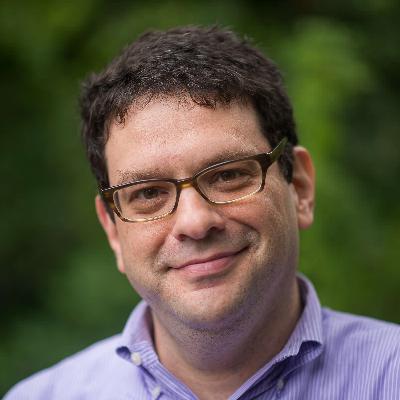

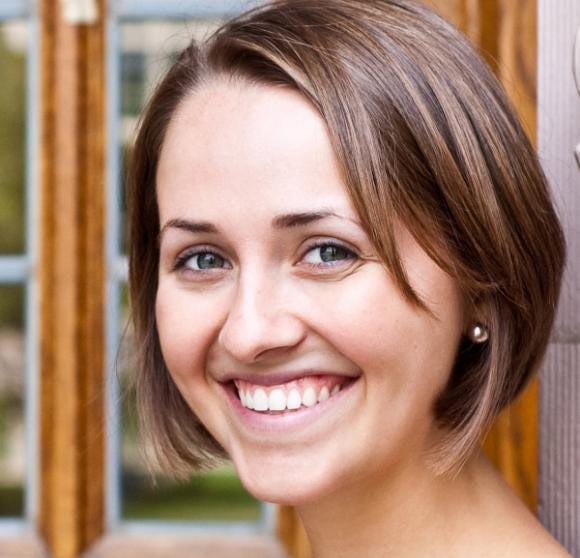
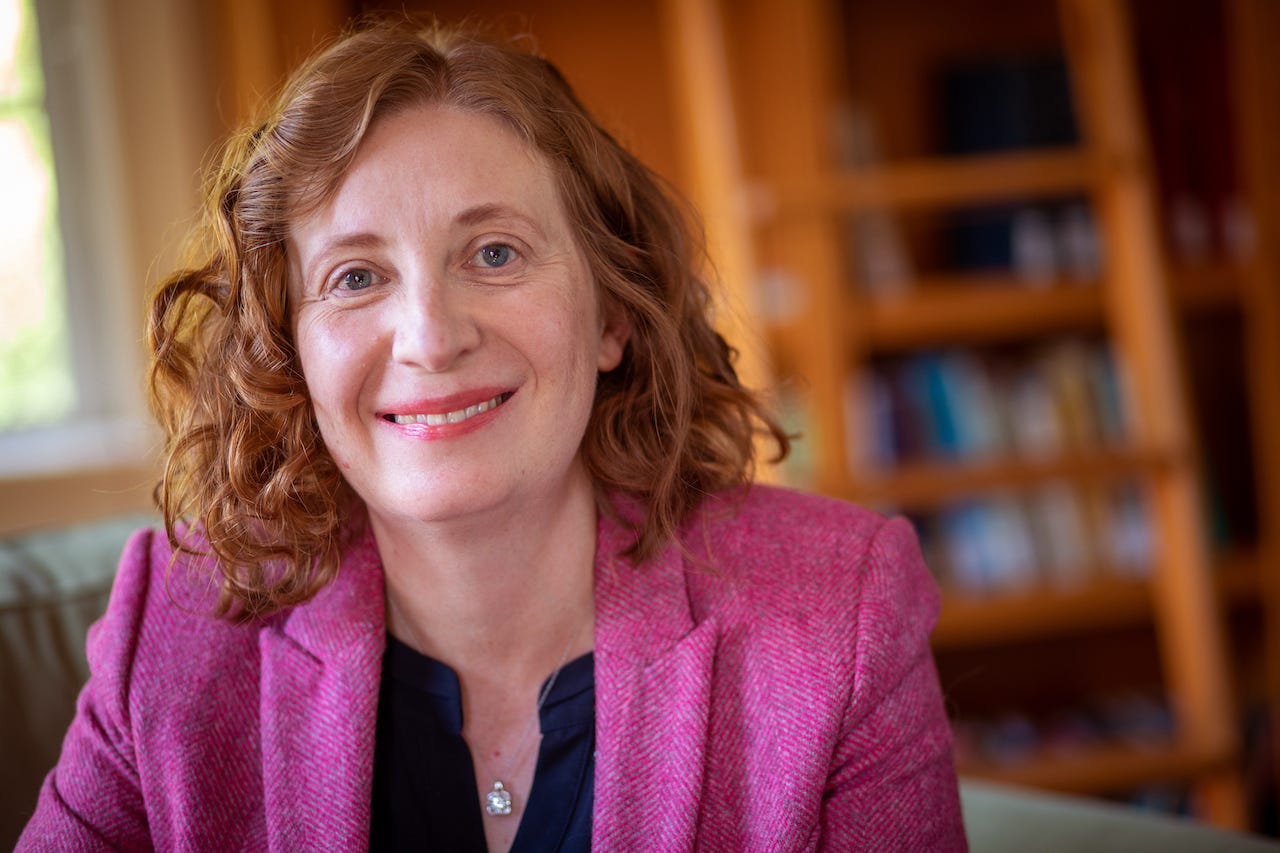
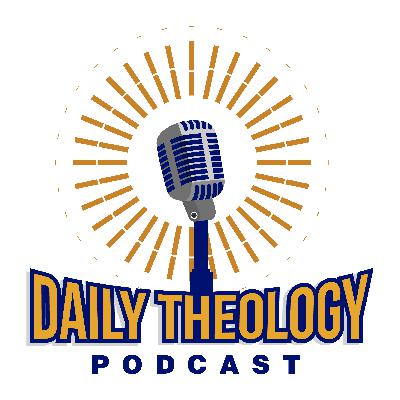
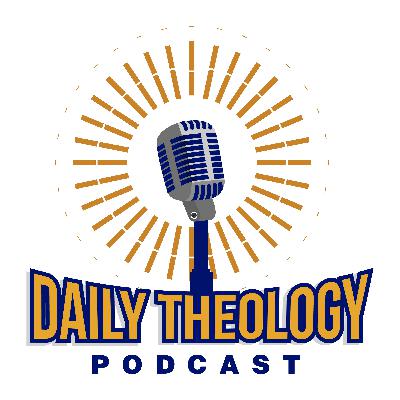
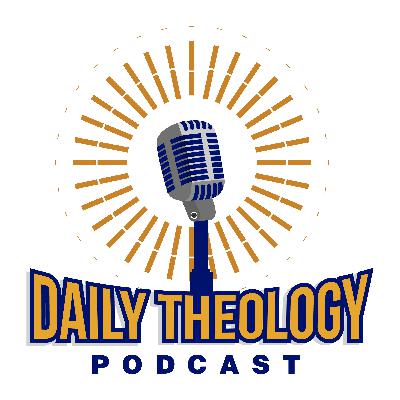
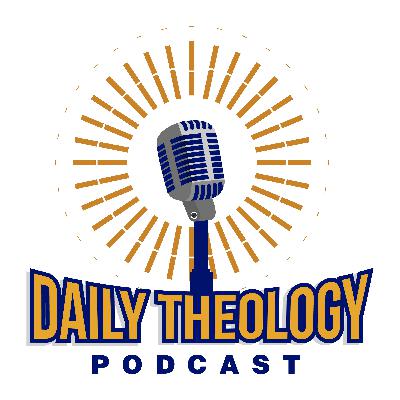

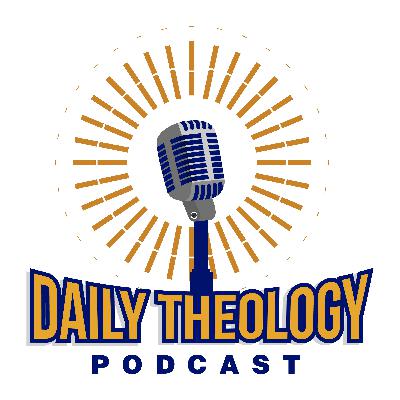
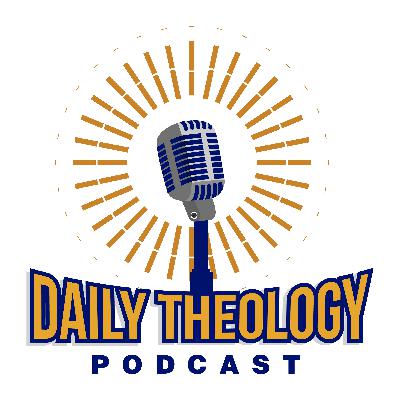

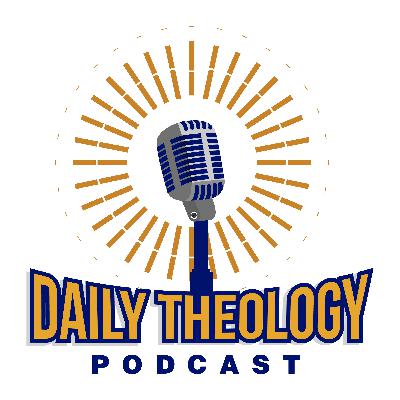

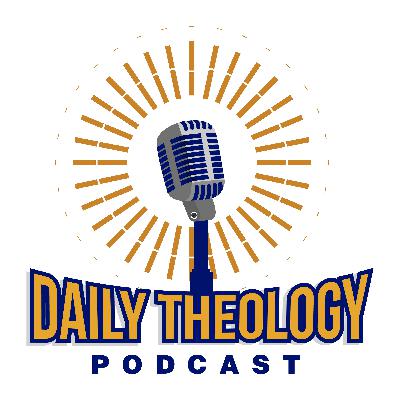

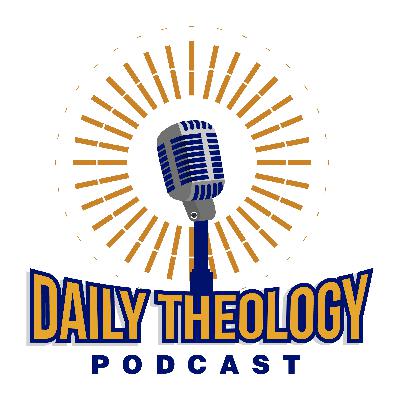

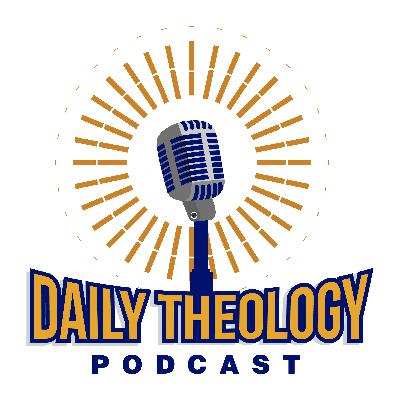
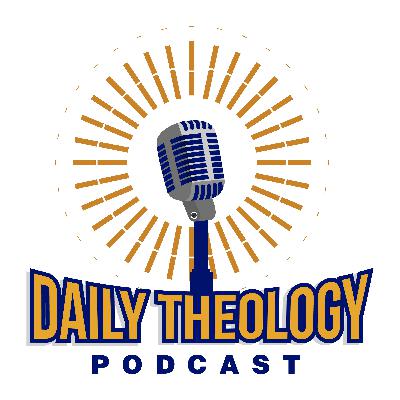



this is a wonderful podcast, insightful reflections and meaningful conversations! love it!